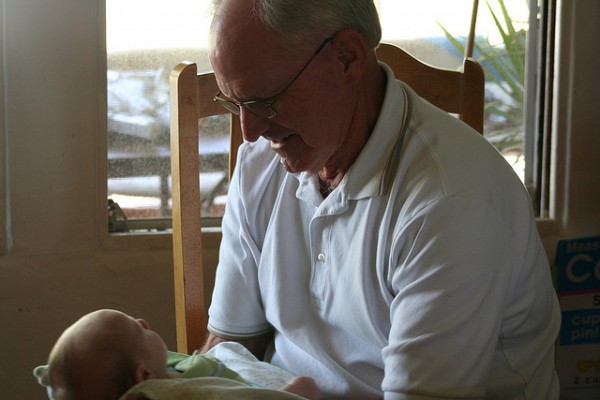Grandparents Exacerbate Baby Blues for Some Moms

Grandparents could worsen baby blues, according to a new study on mothers.
Researchers said that married and single mothers suffer higher rates of depression when they live in multi-generational households in their baby's first year of life. However, having one or more grandparents in the house may ease depression for unwed mothers who live with their romantic partners.
Researchers said these findings held true even after accounting for socioeconomic status, though, they varied by ethnicity.
The study, which involved a nationally representative sample of nearly 3,000 married, single and cohabiting mothers, revealed that Latina single mothers fare especially poorly in multi-generational households. The study revealed that Latina single mothers were six times more likely to be depressed if they lived in multi-generational households in their child's first year of life than if they did not.
Researchers said the difference between subgroups highlight the differing expectations and taboos. Researchers explain that married couples are often expected to be economically self-sufficient and maintain a separate household. However, the same expectations do not apply to cohabitating couples.
"There's a strong expectation that married couples will be economically self-sufficient," lead author Joy Piontak, a research analyst with the Duke University Center for Child and Family Policy said in a news release. "Those are strong cultural values. So there could be a stronger sense of failure among married couples if they have to live with their parents."
Piontak noted that she's unsure of the cause and effect. It could be that living with grandparents worsens single and married mothers, or depressed single and married mothers are less likely to move out from a multi-generational household.
Not much research has been dedicated to three-generation households. However, these types of households are actually quite common. Researchers estimate that 11 percent of all U.S. children live in multi-generational households. Multi-generational living arrangements are even more widespread in some subgroups. Researchers explain that one in two children born to single mothers spend some time living with their grandparents.
Researchers hope the latest study will persuade others to think about this increasingly common type of family living.
"We often talk about families in terms of mothers, fathers and children," Piontak said. "Or we talk about the marital status of the mothers. Families are often a lot more complex than we imagine them to be, though. And that complexity can affect mothers' well-being."
The findings are published in the Journal of Family Issues.
Apr 04, 2014 04:22 PM EDT





